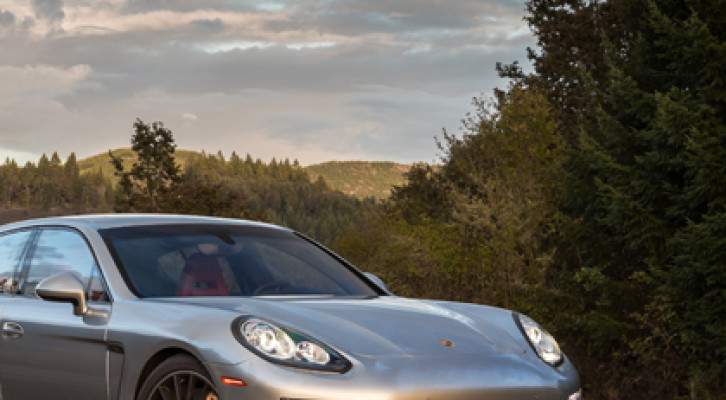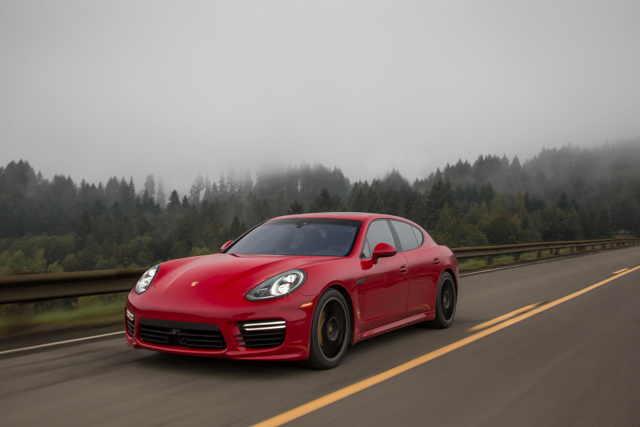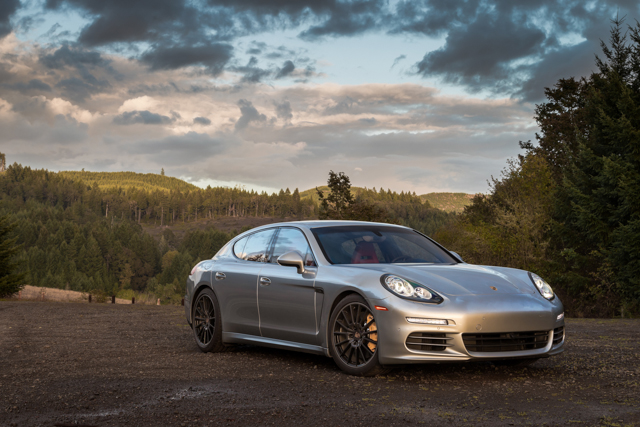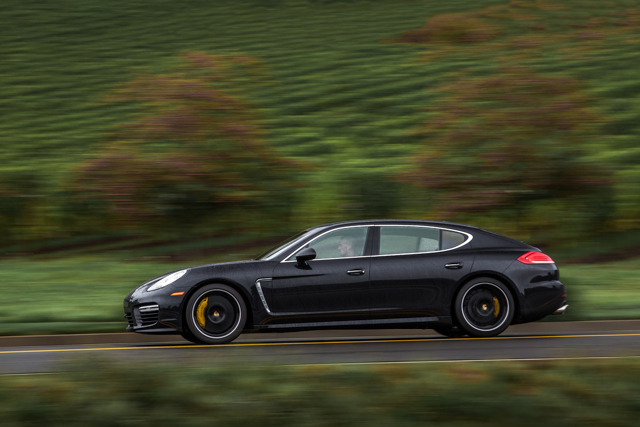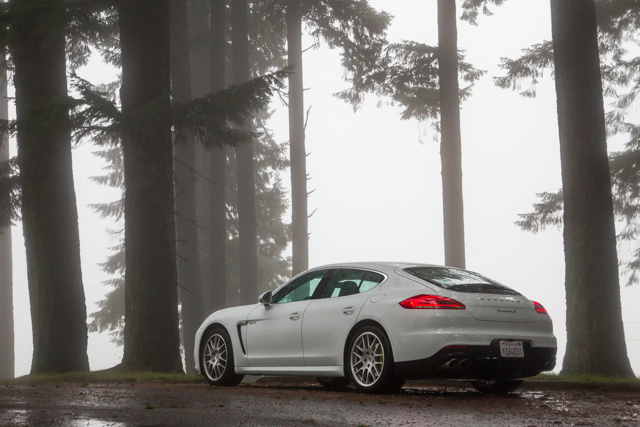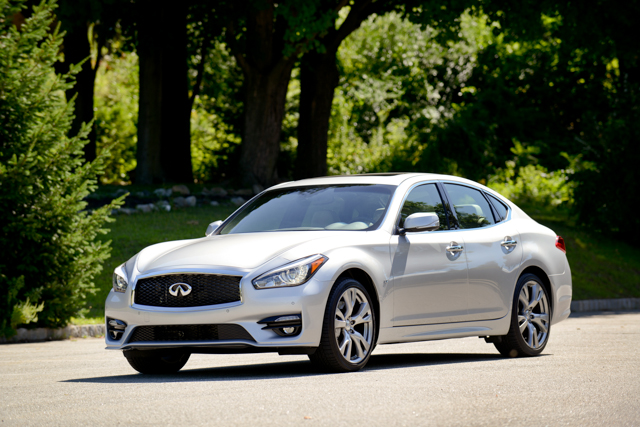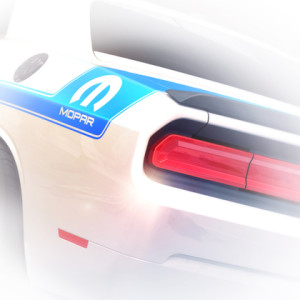Porsche was all too happy to get tongues wagging with the Panamera. Launched in 2009 to compete with the Mercedes S-Class, BMW 7-Series and other premium sedans, the Panamera had its engine at the wrong end for most Porschephiles. It also had two doors too many, and the brand was immediately accused of making a grave mistake with this car. The stretched-911 styling also drew sharp criticism. (For the record, Driving Fans has always liked the Panamera’s unique look.)
The Panamera went on to sell more than 100,000 units in just under four years, exceeding the company’s expectations. With that success, Porsche no doubt felt comfortable taking things even a step further, and for 2014 the Panamera range increases to nine distinct models, including a hybrid and a stretched-wheelbase Executive model. That’s right, in the face of complaints that the Panamera was too bloated, Porsche responded by making it even bigger.
And it works. 2014 is a subtle evolution of the Panamera, with minor styling tweaks hiding more comprehensive changes underneath the surface, in Porsche tradition. As with the 911 and the Boxster, Porsche has put a focus on efficiency, so the Panamera’s fuel economy has improved even in conventional models.
The second-generation design is subtly changed all around. Most noticeable are the larger lower air intakes in the front fascia. Porsche made a slight tweak to the head lamp shape, and bi-xenon lamps are standard. LED headlights are available. There’s more emphasis on the side contours of the Panamera, and the rear window is wider and flatter. The spoiler is broad, and the car’s width is further accented by the relocation of the rear license plate frame to the bumper. The Panamera’s detractors, many of whom thought the rear end was too wide, are now treated to an even wider rear appearance. See? Audacious? The new Executive model also adds to the appearance of bulk, with a 5.9-inch wheelbase stretch that’s all in the center of the car. The Panamera Executive is a massive Porsche, indeed, and resembles the odd 911 limousines that occasionally popped up in the 1980s.
The Panamera doesn’t drive like a chopped and stretched 911, though. Of the large sports sedans prowling the market these days, the Panamera’s the most overtly sporty, offering startling handling and control. The suspension uses double wishbones up front, with a multi-link rear, and all of the components are lightweight aluminum. Updates for 2014 have tightened the suspension all around, and the steering is a bit quicker as well. Even the long-wheelbase Executive offers a tight, controlled drive and always feels confident. Need to power the along twisty, unfamiliar roads on a foggy, rainy morning? The Panamera executes commands like this with stability and comfort, and it’ll still go 170 mph-plus if you get it on a track.
There’s some serious motivation under the hood, in the form of a new 3.0 liter, 420-horsepower V-6. The new base engine produces 384 pound-feet of torque and still gets 27 mpg on the freeway. It burbles just as menacingly, too. It’s a responsive engine, and the standard seven-speed dual-clutch automatic transmission is quick enough that it’s rarely caught out of its powerband. Quick passes on two-lane roads are easy.
They’re even easier in the V-8-powered Panamera GTS, whose 4.8 liter, 440-horse engine gives up about 3 mpg to 6 mpg on the freeway and provides a fantastic purr and crackle from the exhaust. Top of the range is the 520-horse Panamera Turbo, powered by a twin-turbo version of the 4.8 V-8. The Panamera lineup is rounded out by the Panamera S E-Hybrid. The new hybrid-electric Panamera features a 70kW electric motor coupled to a 3.0 V-6, providing a combined 416 horsepower and 435 pound-feet of torque. 0-60 takes 5.2 seconds, with a top speed of 167 mph. The Panamera S E-Hybrid can run on full electric power up to 84 mph and has a battery-only range of just over 20 miles. Porsche uses a new lithium-ion battery that provides over five times the output of the old nickel-metal hydride batteries. This is a plug-in hybrid, so the battery can be charged at a household outlet or home charging station while the car’s parked. Basically, apart from the lime-green trim accents and the occasional engine shutoff, the Panamera S E-Hybrid is just like the conventional version.
The across-the-board improvements to the Panamera’s efficiency come partly through changes to the seven-speed PDK transmission. The PDK is one of the most enthusiast-friendly of the many dual-clutch transmissions available these days, thanks to quick, seamless shifts and rapid response. “Intermediate” gears have been added, providing intermittent steps between cogs.
Porsche has widened the Panamera’s range to create more distinction between the comfort and sport-oriented models, although all Panameras are serious sports cars when you come down to it. Climb into the cabin and the distinction’s a bit blurry, still. The cabin wraps around four passengers in individual chairs with a low roof and high console, but the seats are comfortable and the materials first-rate. If none of the five interior (or 15 exterior) colors are to your taste, Porsche also offers bespoke trim and paint, just like Rolls-Royce and Bentley. For a price, you can get a Panamera painted and upholstered in literally any color you like. 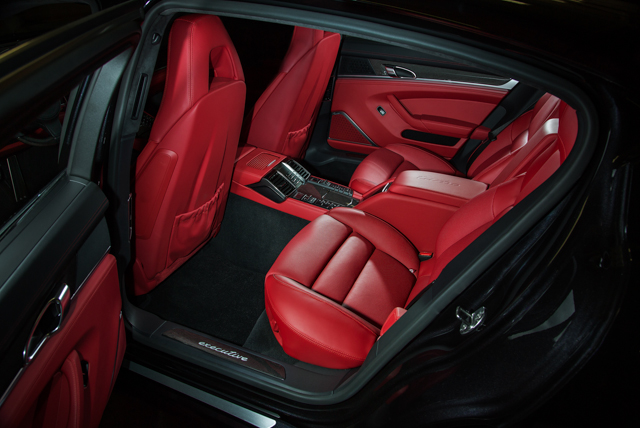
There are an awful lot of buttons on the console, but the Panamera is relatively easy to figure out and, once familiar, it’s a fantastic fast-driving tool. The stretched-wheelbase Executive adds almost 5 inches of rear-seat legroom, and the standard-equipment list includes adjustable rear seats, footwell lighting, three-stage heated and cooled seats and rear sun shades. Many manufacturers speak of building a long-wheelbase car that’s as fun to drive as it is to be driven in, but the results tend to be 60/40 in favor of being driven, at best. Not so the Panamera Executive Turbo. This car could make folks pay for the privilege to be a chauffeur — this it most entertaining pseudo-limo out there.
New for 2014 is Porsche Car Connect, a smartphone app that links various car functions and information to your smartphone. Remote services such as vehicle range, a vehicle locator and horn-flasher, and remote vehicle tracking are available to all Panamera owners. E-Hybrid owners also can benefit from the ability to remotely check the battery status and range, and remotely turn on the electronic air conditioning on hot days.
Porsche may not be the first manufacturer you think of when considering a large luxury sedan, but the Panamera’s forged a unique niche for itself among the Mercedes S-Classes and Maserati Quattroportes of the world. Pricing starts at $78,100 for the base Panamera with the new V-6, but things don’t start getting seriously fun until you step up to the Panamera 4S at $98,300. The Panamera S E-Hybrid stickers for $99,000. The Executive starts at $125,600, and the Turbo at $141,300.

